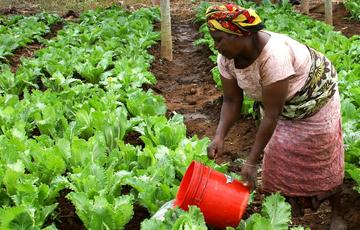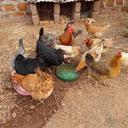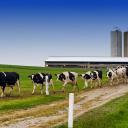Environmental Change Institute researchers contribute to FAO State of Food and Agriculture 2023

Environmental Change Institute researchers contribute to FAO report
Date posted: 6 November 2023
Transforming food systems is an environmental necessity and an economic opportunity. The State of Food and Agriculture (SOFA) 2023, a Food and Agriculture Organization of the United Nations (FAO) flagship publication, focuses on the hidden costs of the food system. SOFA 2023 launches today, 6 November. Chapter 2 features modelling for 154 countries done at the Environmental Change Institute at the University of Oxford.
Highlights from the ECI team, not the opinion of FAO, include:
The SOFA analysis shows that the future economic damages from annual emissions, nitrogen pollution, habitat loss, and unhealthy diets outweighs the gross value add of agriculture.
The country and regional analyses highlight the global costs of nitrogen pollution. While the future economic dangers of climate change and food system contribution to emissions have featured prominently, it is less well known that the economic damages of nitrogen are of the same order. 78% of the atmosphere is nitrogen. Nitrogen biochemical flows are essential to life and society. For this reason people and nature react to large changes to nitrogen flows. The damages from synthetic fertilisers and livestock range from air pollution in densely populated areas to biodiversity losses along waterways and coastal ecosystems.
Another result of the country analysis is the triple burden that low-income countries relying on agriculture face into the future. The costs of obesity and unhealthy diets in sub-Saharan Africa and the costs of increasing nitrogen use and land-use change, will surpass the costs of poverty and undernourishment, likely by 2030. Low productivity farming practices are also among the most polluting, with economic necessity driving agricultural expansion and habitat loss, and the use of low-quality inputs. Low productivity already limits standard economic development in the present. The growth of countries with a high economic reliance on agriculture but low productivity will be double hit in the future as they bear the environmental and public health costs resulting from current practices.
Dietary change promises a significant reduction in damages and would make a significant contribution to future economic development and growth. The global Food System Economic Commission report out soon will explore this further. Harnessing the economic potential of dietary change relies on research and investment in what is politically and economically effective to change diets. Public health has been fighting the battle against obesity and unhealthy diets for decades, but the additional savings from future environmental costs only adds to the imperative and benefits of food system transformation.














